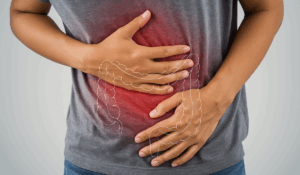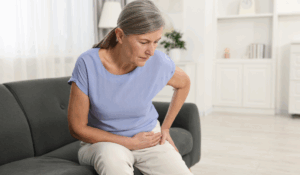Maintaining bone health is crucial for old age to ensure a strong, active, and independent lifestyle. As we age, our bones naturally lose density, making them more susceptible to fractures and conditions like osteoporosis. Here are essential tips to help you maintain bone health throughout your life.
Adopt a Balanced Diet
A well-balanced diet is fundamental to bone health. Ensure your diet includes:
Calcium: This mineral is vital for bone strength. Good sources include dairy products (milk, cheese, yogurt), leafy greens (kale, spinach), and fortified plant-based milk.
Vitamin D: Essential for calcium absorption, vitamin D can be obtained from sunlight exposure and foods like fatty fish (salmon, mackerel), eggs, and fortified cereals.
Protein: Adequate protein intake supports bone repair and strength. Include sources like lean meats, beans, nuts, and seeds in your diet.
Engage in Regular Weight-Bearing Exercise
Physical activity is crucial for maintaining bone density. Engage in:
Weight-Bearing Exercises: Activities like walking, jogging, and dancing help stimulate bone formation.
Strength Training: Lifting weights or using resistance bands strengthens muscles and bones.
Balance and Flexibility Exercises: Practices like yoga and Tai Chi improve balance, reducing the risk of falls and fractures.
Avoid Excessive Alcohol and Smoking
Keep away from excessive alcohol: Refrain from drinking more than moderate amounts; ideally, avoid alcohol altogether for better health.
Avoid Smoking: Do not smoke or use tobacco products to eliminate associated health risks.
Monitor Bone Health
Regular check-ups can help monitor bone health:
Bone Density Tests: Consider undergoing bone density tests, especially if you have risk factors for osteoporosis.
Regular Medical Check-ups: Keep track of any changes in your health that could affect bone density.
Stay Hydrated
Drink Water Regularly: Aim for at least 8 glasses a day, more if you’re active or in hot weather.
Monitor Fluid Intake: Include other fluids like herbal teas and low-sugar drinks.
Eat Hydrating Foods: Incorporate fruits and vegetables with high water content, like cucumbers and oranges.
Consider Supplements if Needed
Assess Nutritional Gaps: Evaluate your diet to determine if you’re missing out on key nutrients. This can be done through dietary assessments or by identifying symptoms of deficiencies.
Choose Quality Supplements: Select supplements from reputable brands that undergo rigorous quality testing. Look for certifications and labels that ensure the supplement is free from contaminants and contains what is stated on the label.
Monitor Medications
Track Medication Use: Keep a record of all medications you’re taking, including doses and timings.
Review with Healthcare Provider: Regularly consult your doctor to evaluate the effectiveness and any side effects of your medications.
Check for Interactions: Be aware of potential interactions between different medications and with certain foods or supplements.
Conclusion
Prioritizing bone health is vital for maintaining a high quality of life as you age. By adopting a balanced diet, engaging in regular exercise, and making mindful lifestyle choices, you can significantly enhance your bone strength and reduce the risk of osteoporosis. Start incorporating these tips into your daily routine to enjoy a healthier, more active life.
Take charge of your bone health now and enjoy a stronger, more vibrant future!
FAQs
How much calcium do I need daily?
Adults typically need about 1,000 mg of calcium per day. Women over 50 and men over 70 should aim for 1,200 mg per day.
How can I get more vitamin D if I can’t get enough from sunlight?
Foods rich in vitamin D include fatty fish, fortified milk, and egg yolks. Supplements are also a good option if dietary sources are insufficient.
What are some signs of bone loss or osteoporosis?
Common signs include back pain, a loss of height, and a stooped posture. However, osteoporosis often has no symptoms until a fracture occurs, so regular bone density tests are important.
Can weight-bearing exercises help if I already have osteoporosis?
Yes, weight-bearing exercises can help maintain bone density and reduce the risk of further bone loss. Consult with a healthcare provider to create a safe exercise plan.
Is smoking really that harmful to bone health?
Yes, smoking can weaken bones by reducing blood flow and decreasing calcium absorption, which can increase the risk of fractures and osteoporosis.






